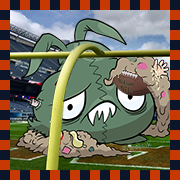|
Harik posted:That's the part I misunderstood. Yes, absolutely, someone can't just say 'Sorry, my accounting services are "art" so Hindus can gently caress right off.' Its also that what is "art" is so flexible and broad that it's not a useful word here. The 1st Amendment protects the expression that can be found in art but it doesn't create a zone that bars laws from affecting it. Even things that contain substantial amounts of expression - food, buildings, etc - can easily be regulated, and when you choose to engage in commercial activity the state is free to require you to provide your services on a nondiscriminatory basis, even if that means compelling you to "make art" you would prefer not to make. And that applies even if we agree its art or not: calling it art isn't a useful concept here. There are some forms of art that are so purely expressive that there's very limited ability of the government to regulate because there's basically nothing but the message conveyed - paintings, books, songs, the spoken word - but that doesn't mean more functional things are not art; just that calling it art or not has no constitutional relevance.
|
|
|
|

|
| # ? Jun 7, 2024 13:13 |
|
evilweasel posted:There are some forms of art that are so purely expressive that there's very limited ability of the government to regulate because there's basically nothing but the message conveyed - paintings, books, songs, the spoken word - but that doesn't mean more functional things are not art; just that calling it art or not has no constitutional relevance. VitalSigns posted:It's not that hard.
|
|
|
|
Harik posted:It's hard to come up with one that you think would pass constitutional muster while clearly being discriminatory. I don't think that would fly. Oh yeah obviously it wouldn't fly. The reason it's hard is because this isn't a real issue and there's no real threat to anyone's right of free expression, it's just a legal smokescreen argument in hope of using conservative control of the courts to impose discrimination on a country that doesn't want it.
|
|
|
|
VitalSigns posted:The reason it's hard is because this isn't a real issue and there's no real threat to anyone's right of free expression, it's just a legal smokescreen argument in hope of using conservative control of the courts to impose discrimination on a country that doesn't want it. Frankly, we have Food Network to blame for this. They've been pushing the envelope on baked creations and confections. It was only a matter of time. OOH! do we get the death of Unions this week, too, or will they hold that till next Monday>>>?
|
|
|
|
vyelkin posted:Yes, and I think that's where the anti-discrimination commission would in all likelihood determine that the service his business provides is "making wedding cakes" and not "making straight wedding cakes", and so he's not actually treating every customer equally but rather discriminating based on sexual orientation. Because otherwise that opens an enormous discriminatory loophole in the law whereby every business in a town could claim the same religious exemption ("my business is making sandwiches for heterosexual people, I won't sell to a straight person if they're planning on giving the sandwich to a gay person, therefore this isn't discriminatory") with the practical purpose of creating a "straights only" town, which is one of the exact things these anti-discrimination laws were written to prevent, only based on race rather than sexual orientation. evilweasel posted:No. I'm saying that something needs to be as bluntly expressive as ADAM AND STEVE FOREVER before it's expressive enough that you can start even discussing if a right not to be compelled to speak exempts you from a general antidiscrimination law. Also, your piss fetish is getting out of hand. evilweasel posted:The goal of these cases - and the religious right has been very open about this - is to chip away at gay rights in the same manner as abortion rights (their words, not mine) - by chipping loopholes in it and then working to expand the loopholes until the right exists only in theory. The confusion over endorsing a message vs. "designing" a cake is intentional: the baker isn't looking to avoid writing Adam and Steve, he's looking to open loopholes in antidiscrimination law.
|
|
|
|
Dead Reckoning posted:Are you serious? I'd say the more dishonest argument here is the idea that the government forbidding possibly expressive activities due to their impact on others is the same as the government compelling someone to express a belief they disagree with. decorating a cake that will be used in a way you are bigoted against is not expressing a belief you are bigoted against, any more than the government compelling me to rent housing in my artistic building that seeks to convey the message of the superiority of the white race on a racially nondiscriminatory manner is forcing me to express a belief in nondiscrimination. it's just forcing me to follow antidiscrimination laws. Dead Reckoning posted:Funny how you only care about people chipping away at rights vs IT'S LEGAL CASE CLOSED when it's an issue you disagree with. yes, i care about chipping away at actual rights and not at chipping away at not-rights. what a conundrum, you've really figured out a contradiction here.
|
|
|
|
Dead Reckoning posted:The flaw here is that you aren't addressing the expression question at all. The bakery never argued that their business model was "straight wedding cakes". The baker claimed they were willing to sell pre-made baked goods to the couple, so the idea that this is equivalent to a "no gays" sign in the window doesn't align with the facts and falls flat. The baker was unwilling to engage in creative and expressive conduct that was counter to his religion. If I go into Subway there aren't any pre-made sandwiches. They cut the bread and put the toppings on after you order it. Does that mean making a sandwich is creative and expressive conduct? If I own a Subway franchise and my religion means I think gay people should starve to death, am I allowed to refuse service to all gay people and all straight people who would give their sandwich to a gay person, because the sandwiches aren't pre-made?
|
|
|
|
Well, they are sandwich artists.
|
|
|
|
Why are people stretching out for bizarre hypotheticals to find something more expressive than cake decorating when there are actual live cases involving wedding photographers and videographers to talk about?
|
|
|
|
vyelkin posted:If I go into Subway there aren't any pre-made sandwiches. They cut the bread and put the toppings on after you order it. Does that mean making a sandwich is creative and expressive conduct? If I own a Subway franchise and my religion means I think gay people should starve to death, am I allowed to refuse service to all gay people and all straight people who would give their sandwich to a gay person, because the sandwiches aren't pre-made?
|
|
|
|
evilweasel posted:decorating a cake that will be used in a way you are bigoted against is not expressing a belief you are bigoted against, any more than the government compelling me to rent housing in my artistic building that seeks to convey the message of the superiority of the white race on a racially nondiscriminatory manner is forcing me to express a belief in nondiscrimination. it's just forcing me to follow antidiscrimination laws. Again your analogy is misleading. The question isn't whether the government can make you follow housing laws in your White Power building, the question is whether the government can compel you to design and build a building that artistically conveys the message of the superiority of the white race (or the equality of all races) in the first place.
|
|
|
|
Dead Reckoning posted:Are you asking the subway person to design an aesthetically unique sandwich just for you? Are you asking them to make a #3, but write "GOD LOVES/HATES FAGS" on it with mustard? Again, the bakery was willing to sell baked goods to the gay couple, so the "will not make a sandwich for a gay person" parallel is inappropriate. IMO, if conduct is sufficiently expressive that the government would not be allowed to censor it, then the government also should not be able to compel it. It's the difference between, "I want a #3 on wheat and a bag of chips" and "I want you to design and make a rainbow sub celebrating gay pride" or "write 'Christ is Lord above all others' in the mustard." you are, persistently, lying about the underlying facts the record contains no evidence whatsoever that the gay couple sought any expressive work that conveyed a specific message. instead, they sought a custom wedding cake, and were rejected before they could even explain their preferred design. now, to be fair, you may merely be repeating the intentional lies without understanding why they are lies. here is the truth: the decision sought by masterpiece was that if an action involves any expressive content whatsoever, it is exempt from antidiscrimination laws. not a cake that says "god loves gays": a custom cake of any kind. as generic as generic can be, a white three-layer cake that doesn't even reference marriage is exempt. that is because the actual goal sought is not about expression, it is about giving anti-gay discrimination constitutional protection. the plaintiffs wish to be able to deny gay men and women full civil rights, including by denying them service at commercial establishments. the sandwich analogy would, precisely, be "gays can come into our sandwich store and buy a bag of chips, but we will not make them any custom sandwich whatsoever" now you, and others, continually lie by suggesting the issue is writing "GOD LOVES GAYS" on the cake but that is not part of the underlying facts of the case nor did the bakers assert that a specific message conveyed by the cake was what they sought to block. instead, what they sought to block was the provision of commercial services to gays, period, on a pretextual basis.
|
|
|
|
Dead Reckoning posted:Decoration absolutely is a form of expression, if it wasn't then there should be no issue because the pre-made birthday cake the bakery offered and a custom decorated wedding cake are indistinguishable from a gastronomical perspective. wrong again. they are not arguing that the message the cake itself sends supported gays. if they designed and made a wedding cake for a straight couple and a gay couple came in and asked for that exact cake, they would reject them. they argued that the use of their "creative work" in a gay marriage changed the message of that work it is precisely the same as black people living in my monument to the klan which doubles as residential housing
|
|
|
|
interesting fact: it has been considered entirely unobjectionable for the government to compel you to speak in certain circumstances for the entire history of the english and american legal system coming to Trump's Next Legal Defense: "your honor, my client has a first amendment right to lie under oath"
|
|
|
|
prick with tenure posted:This is helpful, thanks, but I don't see how it doesn't cut both ways. I don't know this case particularly well, but from what I understand the baker argued that he wouldn't have made a cake for a heterosexual person either, if that person wanted it to help celebrate a gay wedding. His refusal to serve the gay couple wasn't based on their sexuality (as evidenced by his willingness to sell them anything already in his store), but because it was intended to celebrate an event he opposes on religious grounds. He would refuse to provide such a cake to anyone, regardless of sexual orientation. The problem with this argument is that it no longer even pretends to be about expressiveness - it's just straight-up "I should be able to refuse service to that kind of event, because providing service amounts to an endorsement and therefore FIRST AMENDMENT". At that point, all the talk about artisticness and speech has been left in the dust and you're just talking about a blanket ability for anyone to deny service to gay weddings as long as they claim they're religious. In any case, to claim that a "gay wedding" is somehow a different event from a "wedding" is laughable, and isn't new either. In fact, the fact that these kinds of arguments are even being considered by the court just shows how far right it's gone, since plenty of similar arguments were raised and litigated in defense of racism and segregation back in the Civil Rights era. The reason Colorado sided with the bakers against the anti-gay guy was because he was asking for homophobic, anti-gay phrases to be written on the cakes. They were fine with selling to him and to his event, but they refused to put those phrases on a cake (regardless of who ordered the cake or where it was going to be used). That's significantly different from this case, where the baker's objection wasn't about the content of the cake but rather about who he was selling it to.
|
|
|
|
Main Paineframe posted:the baker's objection wasn't about the content of the cake but rather about who he was selling it to. I thought the objection was about where the cake would be used, not who was purchasing it. Isnít that what you were replying to?
|
|
|
|
Thranguy posted:Why are people stretching out for bizarre hypotheticals to find something more expressive than cake decorating when there are actual live cases involving wedding photographers and videographers to talk about? I was just trying to suss out if there was anything that might actually qualify for 1A protection against discrimination charges when you're doing it as a service. The only thing we know for sure qualifies is the purely expressive action of signing a check for women's health insurance.
|
|
|
|
So I'm trying to work out from this if Dead Reckoning, based on the facts of this decision he is either defending or playing devil's advocate for, thinks that a Subway franchise would be entitled to refuse to supply sandwiches for an office of a gay rights charity when they generally are happy to cater other offices on the grounds that there were specific requests for the type of sandwiches and thus there was a creative and equally expressive element involved. Like, if they said they would be willing to supply anything pre-made in their shop for the catering but wouldn't actually bake bread and assemble ingredients since they felt that was how their employees expressed themselves and they felt this would be forcing them to express support of a cause their religion opposed? That seems to be the level of protection that the bakers are seeking.
|
|
|
|
Dead Reckoning posted:Are you asking the subway person to design an aesthetically unique sandwich just for you? Are you asking them to make a #3, but write "GOD LOVES/HATES FAGS" on it with mustard? Again, the bakery was willing to sell baked goods to the gay couple, so the "will not make a sandwich for a gay person" parallel is inappropriate. IMO, if conduct is sufficiently expressive that the government would not be allowed to censor it, then the government also should not be able to compel it. It's the difference between, "I want a #3 on wheat and a bag of chips" and "I want you to design and make a rainbow sub celebrating gay pride" or "write 'Christ is Lord above all others' in the mustard." Do wedding cakes even have writing on them most of the time? I was just looking at Google images and it seems like there isnít usually text from what I can tell.
|
|
|
|
I think my position is pretty simple: design and decoration are both sufficiently expressive that the government can't compel someone to engage in them in support of a message that would violate their moral/religious beliefs. My rough guideline for where that line between expressive conduct and non-expressive should be drawn is: if the government wished to regulate this act, would there be a reasonable first amendment question? If the government decided to blanket ban making cakes, probably not a first amendment question. If the government wanted to ban making cakes designed to celebrate furry pride or cakes decorated with Christian symbols, probably a first amendment question. So I think the baker can't refuse to sell pre-made cakes to gay people, and if he offered a menu of standard cakes, he should be compelled to bake one of those, but he's within his rights if he refuses to design a cake for a celebration he disagrees with or decorate a cake with a message he disagrees with. evilweasel posted:you are, persistently, lying about the underlying facts evilweasel posted:interesting fact: it has been considered entirely unobjectionable for the government to compel you to speak in certain circumstances for the entire history of the english and american legal system  You're seriously trying to argue that, since the government can compel citizens to testify truthfully about factual information, it can also compel them to voice approval of particular opinions? You're seriously trying to argue that, since the government can compel citizens to testify truthfully about factual information, it can also compel them to voice approval of particular opinions?
|
|
|
|
Dead Reckoning posted:I think my position is pretty simple: design and decoration are both sufficiently expressive that the government can't compel someone to engage in them in support of a message that would violate their moral/religious beliefs. My rough guideline for where that line between expressive conduct and non-expressive should be drawn is: if the government wished to regulate this act, would there be a reasonable first amendment question? If the government decided to blanket ban making cakes, probably not a first amendment question. If the government wanted to ban making cakes designed to celebrate furry pride or cakes decorated with Christian symbols, probably a first amendment question. So I think the baker can't refuse to sell pre-made cakes to gay people, and if he offered a menu of standard cakes, he should be compelled to bake one of those, but he's within his rights if he refuses to design a cake for a celebration he disagrees with or decorate a cake with a message he disagrees with. But where does a cake become expression of views? Like if one member of a couple orders a cake with no lettering, no decorations indicative of there being two grooms (say they're using two figurines that are family hand-me-downs) and puts it in the name of "Paul" does the baker have the right to refuse service if he finds out by calling around to tailors, planners etc that the only Paul in town getting married is marrying his soulmate Steve? Basically where are you drawing the line between service and expression here? How different is a pre-made cake from an otherwise generic cake made for Paul? How much weight does the baker's sleuthing carry in determining whether his interest was less in a freedom from compulsory frosting and more bigotry?
|
|
|
|
Dead Reckoning posted:
The government can force doctors to give pregnant women dumb stuff about abortion.
|
|
|
|
I know jack poo poo about wedding cakes, but I gather than there aren't really off the shelf generic wedding cakes, every one is custom built. Personally I wouldn't wanna eat a food product made under force of court order by someone who wanted to not do it badly enough to take it to the supreme court, but I'm guessing given how long these things take the wedding is a memory at this point and the dude will just eat a fine or something.
|
|
|
|
|
Javid posted:I know jack poo poo about wedding cakes, but I gather than there aren't really off the shelf generic wedding cakes, every one is custom built. The same could (and was) said about black people staying in hotels that donít want them or eating food prepared by people who hate them. On an individual level the safe move is to go elsewhere but the Civil Rights Act got results.
|
|
|
|
Dead Reckoning posted:I think my position is pretty simple: design and decoration are both sufficiently expressive that the government can't compel someone to engage in them in support of a message that would violate their moral/religious beliefs. My rough guideline for where that line between expressive conduct and non-expressive should be drawn is: if the government wished to regulate this act, would there be a reasonable first amendment question? If the government decided to blanket ban making cakes, probably not a first amendment question. If the government wanted to ban making cakes designed to celebrate furry pride or cakes decorated with Christian symbols, probably a first amendment question. So I think the baker can't refuse to sell pre-made cakes to gay people, and if he offered a menu of standard cakes, he should be compelled to bake one of those, but he's within his rights if he refuses to design a cake for a celebration he disagrees with or decorate a cake with a message he disagrees with. Baking a cake to a user's specifications is such a pointless loving hill to die on for If free speech against a protected minority can be pierced by a pretextual first amendment claim, life will get a lot harder for black people in a lot of places.
|
|
|
|
Dead Reckoning posted:I think my position is pretty simple: design and decoration are both sufficiently expressive that the government can't compel someone to engage in them in support of a message that would violate their moral/religious beliefs. My rough guideline for where that line between expressive conduct and non-expressive should be drawn is: if the government wished to regulate this act, would there be a reasonable first amendment question? If the government decided to blanket ban making cakes, probably not a first amendment question. If the government wanted to ban making cakes designed to celebrate furry pride or cakes decorated with Christian symbols, probably a first amendment question. So I think the baker can't refuse to sell pre-made cakes to gay people, and if he offered a menu of standard cakes, he should be compelled to bake one of those, but he's within his rights if he refuses to design a cake for a celebration he disagrees with or decorate a cake with a message he disagrees with. Right. So my strongly held religious belief that jews are an inferior race means they can gently caress-off my icecream shop because each "cone" is artistically made per customer. Each carries a an artistic expression that "I think the person I'm making this for is a human worth serving." Boy I'm so glad my serious question if there was anything expressive enough to override equal protection got ignored and we're talking about separate-but-unequal being perfectly fine instead.
|
|
|
|
People's level of discussion around this case is so dumb because the shop owner just said "I don't serve gays" and that was that. It had nothing to do with writing and decorating, it had to do with categorical service. The product didn't matter. The shop owner is free to say "I don't make gay products, even though I do custom work", but if the gays walked in and asked for custom work that was similar to work other customers had recieved and he refused them there could be a case (but it's still have to be pretty clear.)
|
|
|
|
Devor posted:Baking a cake to a user's specifications is such a pointless loving hill to die on for Undoing the Civil Rights Act is a major goal of the GOP, much like how gutting the VRA was a long-standing personal goal of John Roberts.
|
|
|
Platystemon posted:e: In seven years, I may have misremembered how AMFís business model works. https://www.youtube.com/watch?v=NYIsu-wFZu8&t=57s
|
|
|
|
|
Devor posted:If free speech against a protected minority can be pierced by a pretextual first amendment claim, life will get a lot harder for black people in a lot of places. Does a state's categorization of a protected minority trump the federal constitution though.
|
|
|
|
FAUXTON posted:But where does a cake become expression of views? Devor posted:Baking a cake to a user's specifications is such a pointless loving hill to die on for El Mero Mero posted:People's level of discussion around this case is so dumb because the shop owner just said "I don't serve gays" and that was that. It had nothing to do with writing and decorating, it had to do with categorical service. The product didn't matter.
|
|
|
|
reignonyourparade posted:Does a state's categorization of a protected minority trump the federal constitution though. State laws can absolutely abridge constitutional freedom of religion/expression rights when there's a compelling interest. How did religion-based underage marriage turn out?
|
|
|
|
Dead Reckoning posted:In this case, at the point where you ask a person to aid in designing it. Once someone is providing creative input, it becomes their expression. Now IIRC the baker in this case claimed that all his wedding cakes were original creative works. I think that claim might survive in the way a sandwich chain restaurant's would not: people don't go to a custom cake boutique because cakes taste better when they're three levels tall and have flowers piped on them. The whole point is to have something visually unique and artistic. Otherwise people would buy off the shelf cakes for their weddings. Have you ever bought a wedding cake? There is no such thing as an "off the shelf" wedding cake if you're getting anything with more than one layer. The man refused to do any wedding cake at all, not just a custom one. He refused to make the most off the shelf variety of cake he could. And no, most wedding cakes aren't particularly unique. It's literally just options off a menu. Dead Reckoning posted:It's not about cakes though, it's about whether the government can compel you to do creative, expressive work that you disagree with. No it isn't. It's about whether you can refuse service to gay people. Dead Reckoning posted:That's the thing though, according to the baker, he was willing to serve the gay couple pre-made baked goods, or even a birthday cake, but wasn't willing to do a custom cake for a gay wedding. Some posters seem to be arguing that, if you do custom work, you cannot refuse to do custom work based on content if that would impact members of a protected class. This is where you're wrong. He did not offer any "off the shelf" cakes. He refused to do any kind of wedding cake, which are all generic but have customizable options. An off the shelf birthday cake does not suffice as a wedding cake in any traditional ceremony.
|
|
|
|
Dead Reckoning posted:My rough guideline for where that line between expressive conduct and non-expressive should be drawn is: if the government wished to regulate this act, would there be a reasonable first amendment question? If the government decided to blanket ban making cakes, probably not a first amendment question. If the government wanted to ban making cakes designed to celebrate furry pride
|
|
|
|
Dead Reckoning posted:In this case, at the point where you ask a person to aid in designing it. Once someone is providing creative input, it becomes their expression. Now IIRC the baker in this case claimed that all his wedding cakes were original creative works. I think that claim might survive in the way a sandwich chain restaurant's would not: people don't go to a custom cake boutique because cakes taste better when they're three levels tall and have flowers piped on them. The whole point is to have something visually unique and artistic. Otherwise people would buy off the shelf cakes for their weddings. It wasn't about the baker being required to voice a particular opinion and rejecting it based on content, no one is ever required to put *any* message a customer asks for on anything. The baker refused to make the couple any custom cake at all no matter what it was, he refused them before even hearing what they wanted, if they had said "we want the exact same cake that straight couple walked out with" he would have refused even though he was perfectly willing to voice that exact same whatever-opinion-that-cake-represented when the right kind of person ordered it. It was always about who the customer was, not about the content of the work. VitalSigns fucked around with this message at 21:56 on Jun 7, 2018 |
|
|
|
Mr. Nice! posted:No it isn't. It's about whether you can refuse service to gay people.
|
|
|
|
DACK FAYDEN posted:That can't be right. Dead Reckoning is only a pedantic shithead who argues in bad faith about gun rights cases. He's branching out to being wrong about something else now, too. It's progress.
|
|
|
|
To be fair in the end the case was about how much animous a government can show towards a religious group before a law can be considered to be unfairly impinging on that group's freedom of religion. The previous bar was "the people who wrote and passed the law explicitly stated that the purpose of the law is to suppress a specific religion and drive away its adherents". The Court decided that the new bar was "someone somewhere who had nothing to do with the passage of the law said something which could maybe be construed as generally anti-religious if you take it out of context". What a shitshow of a decision.
|
|
|
|
|
https://twitter.com/dominicholden/status/1004806495136043010
|
|
|
|

|
| # ? Jun 7, 2024 13:13 |
|
A good example of drawing inferences the author may not have supported from an opinion is Youngís ruling in Worman v. Baker. He uses Scalia lines, probably throwaways, from D.C. v. Heller in a masterful way. Not that thatís whatís going on with Mullinsí opinion aboveóthe cake shop ruling was very narrow and the majority had to have seen this coming.
|
|
|



































